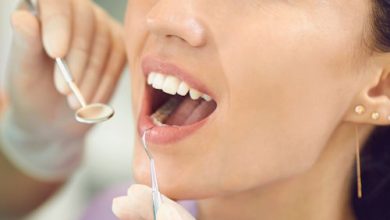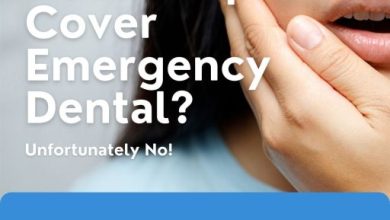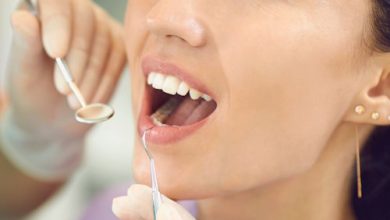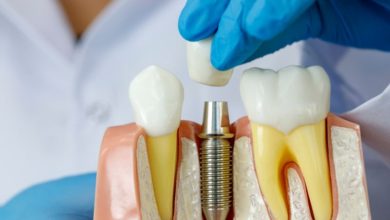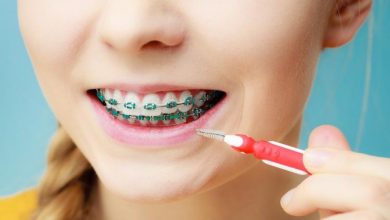Dental Emergency : Urgent Solutions for Dental Emergencies

Dental emergencies require immediate professional attention to alleviate pain and prevent further damage. In these situations, it is essential to seek prompt care from a dentist to address issues such as severe toothache, broken or knocked-out teeth, or injuries to the mouth and gums.
Neglecting dental emergencies can lead to complications and long-term dental problems, so it is crucial to prioritize timely treatment. Remember, early intervention can make a significant difference in preserving oral health and preventing future complications.
Common Dental Emergencies
Dental emergencies can strike unexpectedly, causing severe pain and discomfort. From toothaches to knocked-out teeth, they require immediate attention to prevent further damage and alleviate discomfort. Act fast and seek professional dental assistance for the best outcomes.
When it comes to dental emergencies, being prepared and knowing how to handle them can make a significant difference in saving your teeth and preventing further complications. Below, we will discuss the most common dental emergencies, including chipped or broken teeth, toothache, and knocked-out teeth, along with their respective treatments:
Chipped Or Broken Tooth
- Excruciating pain or sensitivity in the affected tooth.
- Difficulty chewing or biting down.
- Visible cracks or pieces missing from the tooth.
- Bleeding, mainly if the break is deep.
- Rinse your mouth with warm water to clean the area.
- Apply gauze or a clean cloth to any bleeding areas.
- Apply a cold compress to reduce swelling.
- Save any broken tooth fragments, if possible.
- Contact your dentist immediately for an emergency appointment.
Toothache
- A constant or intermittent throbbing pain around the tooth.
- Sensitivity to hot or cold food and beverages.
- Pain worsens when biting down or chewing.
- Swelling around the affected tooth or gums.
- Rinse your mouth gently with warm saltwater.
- Use dental floss to remove any food particles stuck between teeth.
- Apply a cold compress to reduce swelling.
- Over-the-counter pain relievers can help manage the pain temporarily.
- Schedule an appointment with your dentist as soon as possible.
Knocked-Out Tooth
- Complete displacement of the tooth from its socket.
- Bleeding and pain at the site of the missing tooth.
- An empty socket or visible gaps in your smile.
- Immediate action is crucial for successful reattachment.
- Locate the tooth and pick it up gently by the crown, avoiding touching the root.
- Rinse the tooth with water if dirty, but do not scrub or remove any tissue fragments.
- Try to reinsert the tooth into its socket, holding it firmly in place.
- If unable to reinsert, place the tooth in milk or a preservation solution.
- Visit your dentist immediately, preferably within a 30-minute timeframe.
Remember, these guidelines are general advice, and seeking prompt, professional dental care in emergencies is crucial. Following the appropriate steps and contacting your dentist promptly can increase the chances of saving your tooth and restoring your oral health.
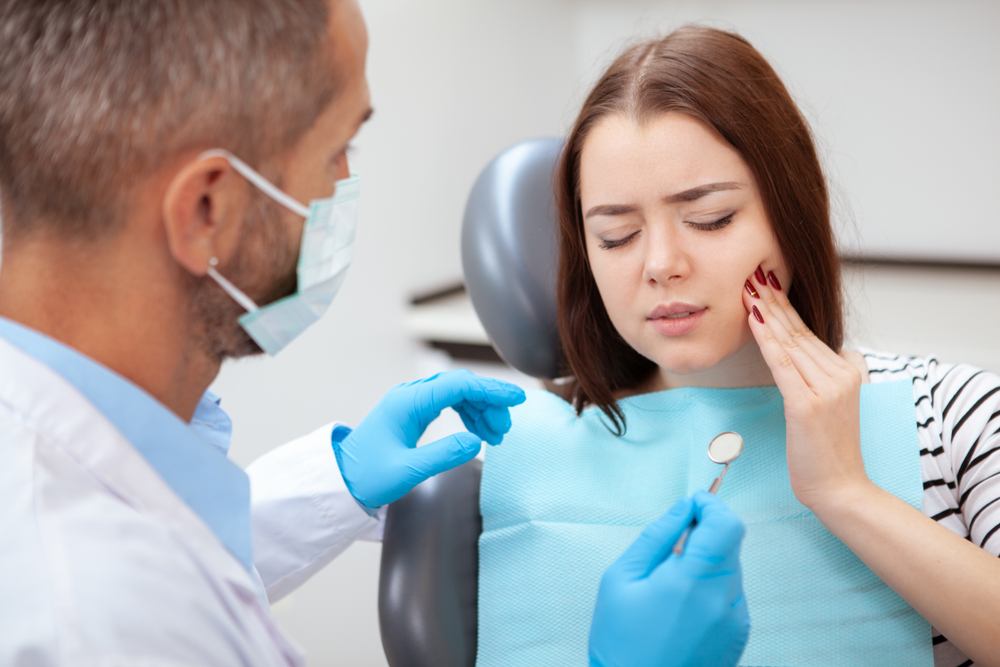
Credit: boyettfamilydentistry.com
Immediate Actions For Dental Emergencies
In case of a dental emergency, immediate action is crucial. Whether it’s a severe toothache or a knocked-out tooth, prompt treatment by a dentist is essential to alleviate pain and minimize damage. Remember to seek professional assistance as soon as possible for the best outcome.
Dental emergencies can be both painful and stressful. Knowing how to respond quickly and effectively can make a real difference in minimizing the damage and discomfort. If you find yourself in a dental emergency, here are some immediate actions you can take:
Rinse Mouth With Warm Water:
Gently rinse your mouth with warm water to clean any debris or blood. This will help you assess the extent of the injury and provide temporary relief from pain.
Apply Cold Compress To Reduce Swelling And Pain:
Apply a cold compress to the affected area to reduce swelling and alleviate pain. This can be achieved by wrapping a bag of ice or a cold pack in a cloth and placing it on your cheek or jaw.
Save And Preserve The Knocked-Out Tooth:
If you have a knocked-out tooth, acting quickly is crucial to increase the chances of reattachment. Handle the tooth only by the crown (the visible part), avoiding contact with the root. Rinse it gently with water, but do not scrub or remove any tissue fragments. To preserve the tooth, you can:
- Place it back in its socket (gently biting down on clean gauze or a tea bag can help hold it in place).
- Keep it in a container of cold milk.
- Use a tooth preservation kit, if available.
Remember, these immediate actions are temporary solutions until you see a dental professional. It’s crucial to seek prompt dental care to ensure proper treatment and prevent further complications.
Chipped Or Broken Tooth Treatments
Get immediate treatment for chipped or broken teeth during dental emergencies. Our expert team is here to provide practical solutions to restore your smile.
A chipped or broken tooth can cause significant discomfort and affect your smile. Thankfully, several treatment options are available to restore your tooth’s appearance and function. This section will discuss three common chipped or broken tooth treatments: dental bonding, dental veneers, and dental crowns.
Dental Bonding:
- Dental bonding is a simple and non-invasive treatment option for chipped or broken teeth.
- It involves applying a tooth-colored composite resin to the affected tooth and shaping it to match the natural tooth structure.
- The resin is then hardened using a special light, bonding it to the tooth for a seamless restoration.
- Dental bonding is a versatile treatment that can fix minor to moderate chips and cracks while improving tooth discoloration or gaps.
- This treatment is relatively quick, cost-effective, and requires minimal tooth preparation.
Dental Veneers:
- Dental veneers are thin shells made of porcelain or composite resin that are custom-made to cover the front surface of a tooth.
- They are an excellent option for repairing larger chips, cracks, or extensive tooth damage.
- Veneers are designed to match the color and shape of your natural teeth, providing a natural and aesthetically pleasing result.
- The process involves removing a small amount of enamel from the tooth’s surface and then bonding the veneer to the tooth using a dental adhesive.
- Dental veneers are durable, long-lasting, and provide a strong and durable solution for chipped or broken teeth.
Dental Crowns:
- Dental crowns are recommended for severely chipped or broken teeth where the tooth’s structure is compromised.
- A dental crown is a cap that covers the entire tooth, providing strength protection and restoring the tooth’s shape and size.
- Crowns can be made from various materials, including porcelain, ceramic, or metal, depending on the patient’s specific needs.
- The procedure involves preparing the tooth by removing damaged or decayed parts and placing a custom-made crown over it.
- Dental crowns offer excellent durability and functionality, allowing you to bite and chew without discomfort or worry.
Several treatment options are available to restore your smile if you have a chipped or broken tooth. Dental bonding, dental veneers, and dental crowns are practical solutions that can provide long-lasting results. It’s essential to consult a dentist who can assess your situation and recommend the best treatment for you.
Don’t let a chipped or broken tooth diminish your confidence – explore these treatment options and regain a beautiful smile.
Toothache Relief Remedies
Find fast relief for toothaches with these effective dental emergency remedies, allowing you to tackle your pain quickly and naturally. Whether using clove oil, salt water rinse, or a cold compress, these remedies will help alleviate toothache discomfort.
Experiencing a toothache can be unbearable, causing sharp and persistent pain that can disrupt your daily routine. While it’s essential to consult a dentist for proper diagnosis and treatment, some home remedies can temporarily relieve a toothache.
Here are a few toothache relief remedies you can try:
Over-The-Counter Pain Medications
Ibuprofen: Commonly used for pain relief, ibuprofen can help ease the discomfort associated with a toothache. It also reduces inflammation, providing some relief.
Acetaminophen: Another option for pain relief, acetaminophen can effectively alleviate toothache symptoms. However, it may not address the underlying cause.
Saltwater Rinse
Saltwater is a natural remedy that can help reduce inflammation and kill bacteria in the mouth, providing temporary relief. To make a saltwater rinse, dissolve half a teaspoon of salt in eight ounces of warm water. Swish the solution around your mouth for 30 seconds before spitting it out. Repeat this process a few times a day.
Clove Oil
Clove oil has long been used for its analgesic properties and can help numb the affected area, relieving temporary toothache. You can apply a small amount of clove oil directly to the affected tooth or use a cotton ball soaked in clove oil. However, it’s essential to use it sparingly and avoid getting it on your tongue or other sensitive areas, as it can irritate you.
Remember, these toothache relief remedies are temporary solutions and should not replace professional dental care. It is essential to consult a dentist to determine the underlying cause of your toothache and receive appropriate treatment. While waiting for your dental appointment, these remedies can temporarily relieve the discomfort associated with a toothache.
Knocked-Out Tooth Solutions
Are you looking for dental emergency solutions for a knocked-out tooth? Our expert team provides quick and effective remedies to restore your smile and minimize damage. Trust us for immediate and reliable dental care.
Losing a tooth due to an unexpected accident or injury can be a distressing experience. However, there are steps you can take to increase the chances of saving the tooth and minimizing long-term damage. In this section, we will discuss three possible solutions for a knocked-out tooth: reinserting the tooth, preserving the tooth in milk or saliva, and seeking immediate dental care.
Try Reinserting The Tooth
- Gently hold the tooth by the crown, avoiding touching the root.
- Rinse any dirt or debris from the tooth with water or saline solution.
- Try to reinsert the tooth back into its socket, ensuring it is facing correctly.
- Apply light pressure to hold the tooth in place.
- If successful, bite down on a clean cloth to keep the tooth in position.
Preserve The Tooth In Milk Or Saliva
- If you cannot reinsert the tooth, it is crucial to preserve it properly.
- Place the tooth in a container of milk or saliva to keep it moist.
- Avoid using water as it may damage the root surface of the tooth.
- If using milk, make sure it covers the tooth entirely.
- In the case of using saliva, spit into a container and place the tooth in it.
Seek Immediate Dental Care
- Contact your dentist or an emergency dental clinic as soon as possible.
- Explain the situation and try to schedule an appointment immediately.
- Time is of the essence when it comes to saving a knocked-out tooth, so seek professional help promptly.
- The dentist will examine the tooth and determine the best course of action.
- They may attempt to reposition the tooth, perform a root canal, or use a splint to fix it.
Remember, each minute counts after a tooth has been knocked out, so quick action is crucial. Follow these steps to increase the chances of saving your tooth, and consult a dental professional for further guidance.
Prevention Of Dental Emergencies
Learn how to prevent dental emergencies by following simple tips and best practices. By taking care of your oral health, maintaining regular dental check-ups, and wearing protective gear during physical activities, you can minimize the risk of experiencing a dental emergency.
Dental emergencies can be unexpected and often come with much pain and discomfort. However, you can take specific preventive measures to reduce the risk of experiencing a dental emergency. Following these simple steps can protect your teeth and oral health in the long run.
Regular Dental Check-Ups And Cleanings:
- It is essential to visit your dentist regularly for check-ups and cleanings. These routine visits allow your dentist to detect potential dental issues early on and prevent them from escalating into emergencies.
- During these appointments, your dentist will thoroughly clean your teeth, removing any plaque or tartar buildup that can lead to tooth decay or gum disease.
- Regular check-ups involve examinations and X-rays, which can help identify hidden dental problems that may cause emergencies if left untreated.
- Maintaining a consistent dental check-up schedule ensures that any potential issues are addressed promptly, reducing the risk of emergencies.
Wearing Mouthguards During Sports Activities:
- If you participate in sports or other physical activities, it is crucial to wear a mouthguard. Mouthguards provide a protective barrier that can prevent dental injuries during impact or contact.
- Whether you play contact sports like football or engage in recreational activities such as skateboarding or biking, wearing a properly fitted mouthguard is essential.
- Mouthguards act as a cushion, absorbing the impact force and reducing the risk of tooth fractures, chipping, or even complete tooth loss.
- Investing in a custom-made mouthguard from your dentist offers the best protection, as it will fit your teeth perfectly and provide maximum coverage.
Being Cautious With Hard Foods And Objects:
- Pay close attention to the foods and objects you put in your mouth. Some hard foods, like ice, hard candies, or popcorn kernels, can cause dental emergencies if bitten too forcefully.
- Avoid using your teeth as tools to open packages or as bottle openers. Using your teeth for anything other than eating can lead to chipped or cracked teeth.
- Be cautious when biting down on hard objects like pens or pencils, as they can cause dental injuries if a sudden movement occurs.
- By being mindful of what you put in your mouth and avoiding unnecessary stress on your teeth, you can significantly reduce the risk of dental emergencies.
Remember, prevention is always better than cure for dental emergencies. Regularly visiting your dentist, wearing mouthguards during physical activities, and being cautious with hard foods and objects can protect your dental health and avoid unnecessary pain and discomfort.
Take these simple steps and prioritize your oral well-being.
Frequently Asked Questions For Dental Emergency
Q: What Is A Dental Emergency?
A dental emergency refers to any urgent dental problem that requires immediate attention to alleviate severe pain bleeding, or save a tooth from further damage.
Q: What Are Common Dental Emergencies?
Common dental emergencies include severe toothache, knocked-out tooth, cracked tooth, dental abscess, lost filling, or a broken orthodontic wire.
Q: How Can I Manage A Dental Emergency At Home?
While awaiting professional help, you can manage a dental emergency at home by rinsing with warm salt water, applying a cold compress, avoiding sugary foods, and using over-the-counter pain relievers.
Q: Is It Important To Contact A Dentist During A Dental Emergency?
Yes, it’s crucial to contact a dentist during a dental emergency to receive proper diagnosis, pain relief, and timely treatment to avoid further complications or permanent damage.
Conclusion
In closing, it is crucial to be prepared for dental emergencies. You can minimize the risk of dental injuries by taking preventative measures, such as avoiding hard foods and wearing mouthguards during physical activities. However, accidents can still happen, so knowing what to do in a dental emergency is essential.
Acting quickly and seeking immediate dental care can significantly save a tooth or relieve pain. Stay calm, assess the situation, and contact your dentist for guidance. Additionally, keeping a dental emergency kit at home and being aware of available emergency dental services can provide peace of mind.
By prioritizing your oral health and being prepared, you can confidently handle dental emergencies and minimize long-term consequences. Take the necessary steps to protect your smile because your dental well-being matters.

